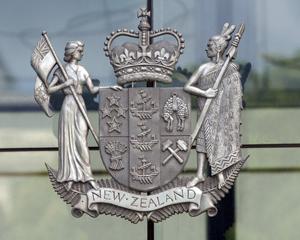New proposals to make it harder for the evidence and the names of accused and convicted people to be suppressed in court and easier to suppress the names of children and victims, signal the rebalancing of the intention of the law, an Otago law professor says.
The Government announced on Monday it intended introducing to Parliament, before the end of the year, a Bill outlining the proposed changes.
The proposals include automatic name suppression for child victims and substantial penalties for breaches of suppression orders.
Justice Minister Simon Power said there was growing concern that the existing grounds for suppression orders were unclear and orders were made inconsistently.
Being famous or well known was not a good enough reason to be granted name suppression and one set of rules was needed for everyone to ensure public confidence in the justice system.
"However, the presumption of open justice must be balanced against the right of a defendant to a fair trial, and we must protect victims where the publication of a defendant's name would also lead to a victim's identification."
Until now, child victims were not protected by automatic name suppression, while child witnesses and victims of specified sexual offences were.
There would be substantial increases to the penalty for breaches, including up to six months' jail and fines at judges' discretion for individuals; maximum fine to increase from $5000 to $100,000 for organisations; and making a new law so not only website content hosts, but their service providers, are responsible for removing suppressed information.
A national register of suppression orders would also be considered to help the media comply with suppression orders, Mr Power said.
The proposed changes were based on recommendations from the Law Commission.
Associate Prof Andrew Geddes, from Otago University's law faculty, said there was nothing too surprising in the changes, which reflected a public concern about the way suppression orders were seen to be operating.
The proposed changes to penalties for breaches showed blogger Cameron Slater, who was recently convicted and fined in total nearly $8000 on eight counts of breaching non-publication orders and one of revealing a sexual abuse victim's name, was fortunate to have carried on his crusade when he did and raised the question about whether his actions were needed when this work by the Law Commission and the Government was going on at the same time, Prof Geddes said.
The strict liability rules would make people much more careful about what they published.
A few high-profile cases had led to a misapprehension among the public about how often and the circumstances in which name suppression was applied.
The proposed changes would clarify for the public that it was slightly harder for accused and convicted people to get name suppression, and at the same time easier for victims and children to get it.
"It's a rebalancing of what it's intended to do."
New Zealand's Media Freedom Committee, which represents the country's major newspapers, television and radio networks and magazines, welcomed the proposals, but urged caution over the move to suppress automatically the names of child victims of crime because it could create a whole class of victim whose story could never be told to the public.
"The lessons for society from their experiences would be much diminished by the very anonymity of the victim," committee chairman Tim Murphy said.



